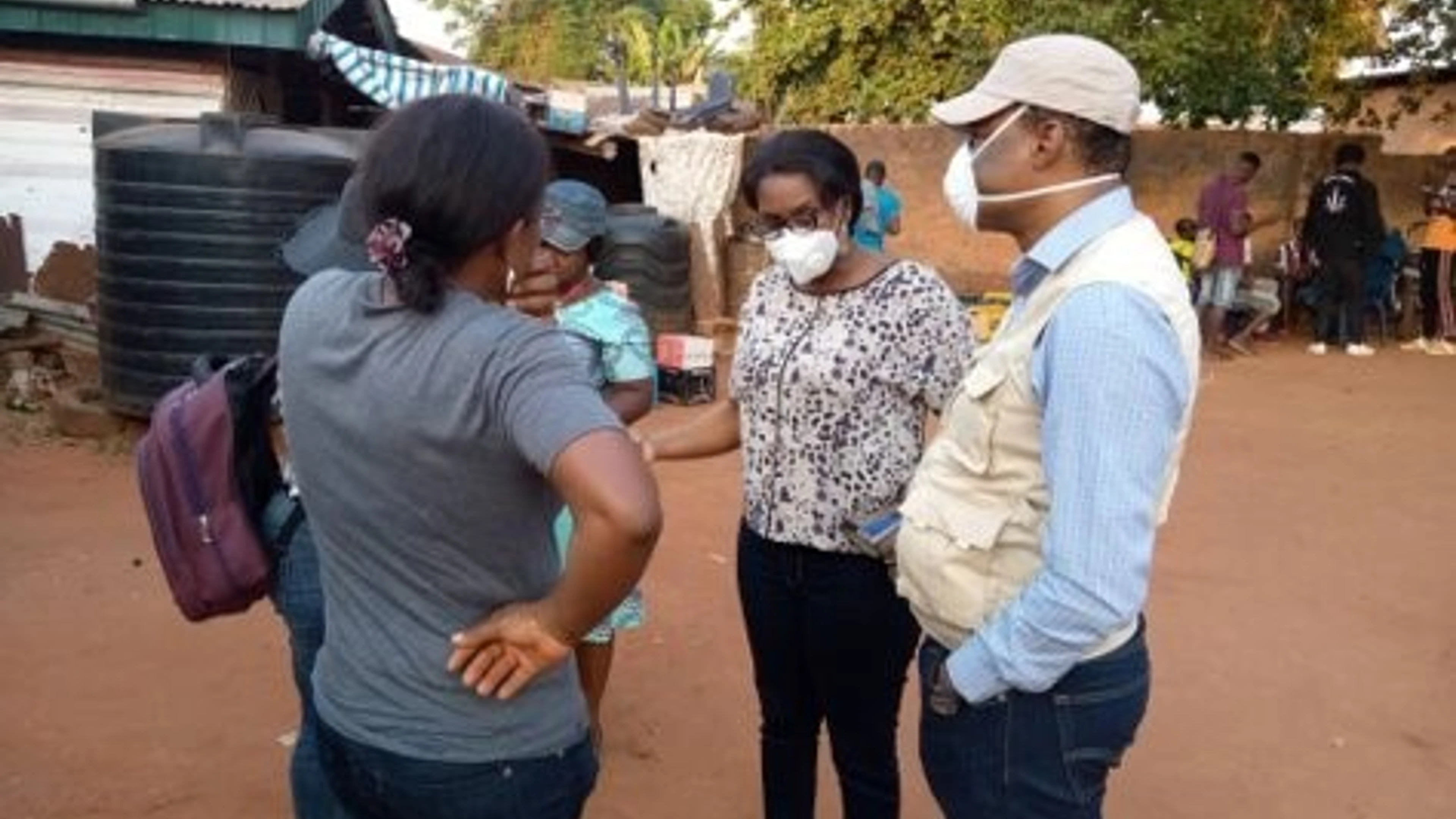ABUJA/OSLO, Oct 2—Scientists in Nigeria are expanding their research into the deadly Lassa fever with the launch of a pioneering study designed to get a better idea of the variation in disease symptoms and how these compare to malaria and other worrisome infections found in the region.
The new research, led by the Nigeria Centre for Disease Control and local study sites, forms part of Enable, the world’s largest Lassa fever study. Enable was created by the Coalition for Epidemic Preparedness Innovations (CEPI) and partners to provide a more accurate picture of the disease burden in West Africa and help inform outbreak preparedness efforts, including the development of a Lassa vaccine.
Dr Muhammad Ali Pate, Coordinating Minister of Health and Social Welfare of Nigeria, said: “Lassa fever remains a public health burden in Nigeria and West Africa, but the commitment to research and innovation is yielding promising progress. The new Enable research will deepen our understanding of the virus and enhance the work being undertaken to develop the first-ever Lassa vaccine to safeguard the health of our communities. The Federal Ministry of Health and Social Welfare remains committed to working alongside our partners and neighbouring nations to advance these efforts and bring the suffering caused by Lassa fever to an end.”
Five thousand healthy people, including children and infants, will be invited to take part in the new year-long study. The research will launch this month at sites in Nigeria (Edo, Ondo and Ebonyi states), as well as Sierra Leone and Liberia in later weeks.
While Lassa fever is a known public health burden in the region—with hundreds of thousands estimated to be infected each year—many cases are likely going unreported due to difficulties with Lassa case detection. Most people infected with the Lassa virus are thought to be minimally symptomatic or asymptomatic and are therefore going under the radar. For those that do suffer with symptoms, like fever, headache and chills, they may be misdiagnosed with diseases like Ebola, dengue or malaria which can also first present with similar non-specific symptoms.
“Incomplete detection of Lassa fever cases not only impacts our understanding of the true incidence rate and therefore the level of resource needed to respond to the disease, but it could also threaten the evaluation, rollout and acceptance of future Lassa vaccines” explains Dr Richard Hatchett, CEO of CEPI.
The new research therefore aims to improve scientific understanding on how commonly Lassa fever occurs, how rates of infection and symptoms vary across selected locations, ages, sex and previous exposure to the virus, and the extent of post-infection symptoms like hearing loss. Scientists will also look at how often people may be co-infected with Lassa fever and malaria since co-infections may complicate the clinical course of each disease.
“Insights gained on the diversity of disease symptoms will enhance our understanding of Lassa fever, categorised into mild, moderate or severe cases” added Dr Richard Hatchett. “This information will be crucial in guiding where and how future late-stage vaccine trials are conducted and determining priority groups for receiving the Lassa vaccine once it becomes licensed in the coming years.”
A recent modelling study, led by the Universities of Oxford and Liverpool and the Liverpool School of Tropical Medicine and funded by CEPI, estimated that 3300 lives could be saved across the region over a ten-year period from the introduction of a Lassa vaccine. The most advanced Lassa vaccine candidate, developed by IAVI, is currently undergoing Phase 2 trials in the region.
Mrs Elsie Ilori, Enable National Project Coordinator, Nigeria, said: "The launch of this expanded Lassa fever study is a key step in our ongoing efforts to understand and combat this dreadful disease. Through deeper investigations into the variations of Lassa fever symptoms and their comparison to other prevalent infections within the region, we will obtain valuable insights that can improve diagnosis, boost outbreak preparedness, and inform the future vaccine development. This study will help us better understand how to reduce the Lassa fever burden in Nigeria and West Africa while saving lives and improving our health systems."
Dr Jide Idris, Director General of Nigeria Centre for Disease Control and co-chair of the Nigeria Lassa Vaccine Task Force, said: “This expanded investigation represents key progress in our battle against Lassa fever. We are improving our capacity to identify and recognize cases while preparing for future vaccine development by examining the disease’s symptoms and its connection to other infections. The results of this work are vital for forming health practices and promoting the health of populations in Nigeria and West Africa. Our global partners and local communities are assisting us in making strides towards lessening the impact of Lassa fever and getting ready for a future that can block its life-threatening effects.”
First formally diagnosed in Nigeria in 1969, Lassa fever is a potentially deadly disease primarily spread to people by infected Mastomys rats. While the majority of those infected are thought to be asymptomatic, it can lead to more serious symptoms, including in mother and baby if pregnant women become infected. On average 1% of cases are fatal. The World Health Organization has identified Lassa fever as a priority pathogen in urgent need of R&D.
CEPI first launched Enable in 2019. Over 23,000 participants across West Africa have taken part in the research to date, with initial data collected up to 2024 expected to published in upcoming months.
In addition to increasing knowledge of the disease and its case count across the region, Enable is advancing study site capabilities and helping them prepare for future epidemic and vaccine research, such as potentially supporting future Lassa vaccine trials.
ENDS
Notes to Editors
About the expanded Enable research
- Participant enrollment will be supported by local community leaders and on-the-ground teams.
- The expanded study will be conducted at 5 sites that will work with nearby communities where available data suggests that the risk of Lassa infection is relatively high. These are: Phebe Hospital in Liberia, Irrua Specialist Teaching Hospital, Federal Medical Centre Owo, and Alex Ekwueme Federal University Teaching Hospital Abakaliki in Nigeria and Kenema Government Hospital in Sierra Leone.
- Study sites were selected due to their connections to healthcare facilities specialised in diagnosing and treating Lassa fever.
- Each of the 5 study sites aims to recruit one thousand people, with groups of participants equally divided up by age: 200 participants aged 0-5 years, 6-10 years, 11-17 years, 18–50 years, and over 50 years old.
- Participants will be monitored for Lassa fever for a 12-month period through biweekly home visits, diagnostic tests and blood sample collections to assess if they have been infected with Lassa fever and the extent to which cases are symptomatic or asymptomatic. The data will be anonymised and shared with local health officials and vaccine developers to inform Lassa case definitions and help plan for future vaccine clinical trials.
- The study is approved by Sierra Leone’s National Ethics Committee and Nigeria’s National Health Research Ethics Committee. Approval by Liberia’s National Research Ethics Board is expected to follow.
About CEPI’s investments in Lassa fever
CEPI is one of the world’s leading funders of Lassa fever research, with the goal to . More about CEPI’s Lassa investments is available here.
CEPI maintains close engagement with institutions such as the West African Health Organisation (WAHO), as well as national public health agencies and Ministries of Health in the countries most affected by Lassa fever. In Nigeria, this includes working closely with the national Lassa Vaccine Task Team under the leadership of the Nigerian Ministry of Health with a secretariat hosted by NCDC.
About CEPI
CEPI was launched in 2017 as an innovative partnership between public, private, philanthropic and civil organizations. Its mission is to accelerate the development of vaccines and other biologic countermeasures against epidemic and pandemic disease threats and enable equitable access to them. CEPI has supported the development of more than 50 vaccine candidates or platform technologies against multiple known high-risk pathogens and is also advancing the development of rapid response platforms for vaccines against a future Disease X. Central to CEPI’s pandemic-beating five-year plan for 2022-2026 is the ‘100 Days Mission’ to compress the time taken to develop safe, effective, globally accessible vaccines against new threats to just 100 days.



.webp)
